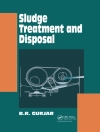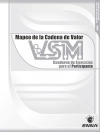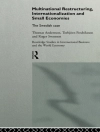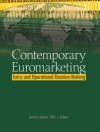Sustainable Tourism in the Americas introduces the reader to the establishment of sustainable tourism across the region. It examines questions such as ‘what is really meant by sustainable tourism?’
Covered in eight chapters, the book discusses the evolution and application of the concept in the Americas from its origins as well as documenting established success stories of sustainable tourism policy and implementation from several countries in the Americas. The country and regional case studies critically examine what sustainable tourism means in their destination and address how in practice the concept of sustainability can be built to show results across different cultural and ecological situations ranging from local indigenous sites to urban environments.
The book presents solid findings and includes content from:
· research of academics and experiences of those working within the heritage setting;
· recent criteria and indicators of sustainable tourism developed by GSTC and other standards, indicators and observatories work associated with UNWTO;
· success stories of managing Western tourism destinations and applies relevant lessons to Americas;
· Provides support to those who need to study and manage impacted destinations.
It will be a valuable addition to the current lack of literature on this concept and of particular interest to those working within and studying tourism management and related themes.
Despre autor
Luis E. Márquez, Ph D in Economics, University of Matanzas, Cuba. Professor and researcher at the School of Tourism, Faculty of Administrative and Economic Sciences of the Technical University of Manabí, Ecuador. Member of the sustainable tourism research group of the School of Tourism. Member of the Iberoamerican Network Proplayas. He has worked as a consultant for the National Observatory of Science and Technology and Innovation (ONCTI) of Venezuela and the Institute of Energy Studies of Petroleos de Venezuela (PDVSA). He has given several workshops in Ecuador on sustainable tourism indicators.












